What happens to your body when you start an anti-inflammatory diet, especially for beginners to this way of eating? That is a question I hear a lot from clients who want to transform their health and begin to heal their autoimmune disease. It's first worth explaining why an anti inflammatory diet is important, especially if you struggle with autoimmune issues. So let's dive right in with a little education on this topic.
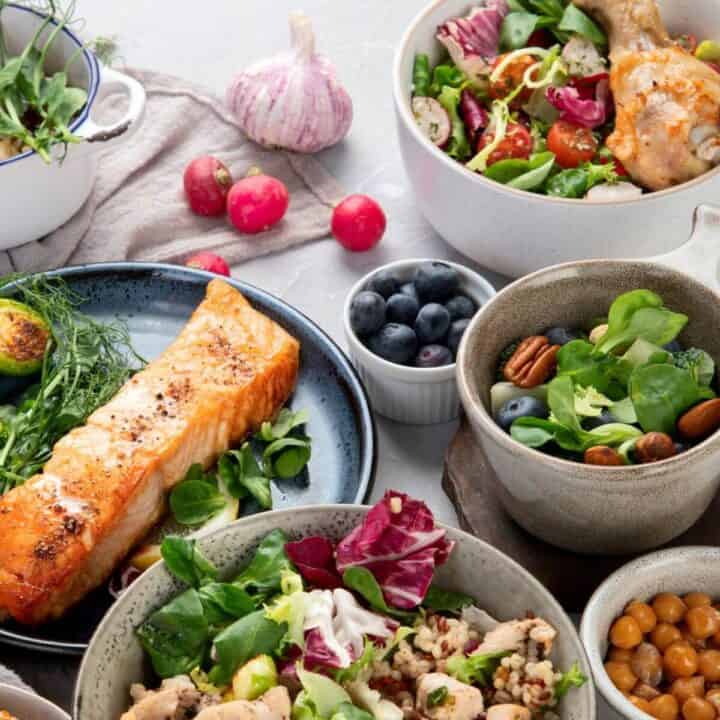
Table of Contents
🥗 Anti-Inflammatory Diet: Foods To Eat And Foods To Avoid
Let's start by discussing anti inflammatory diet for beginners. Have you ever woke up feeling achy, tired, or not quite yourself? Many of us experience these symptoms without realizing they could be linked to inflammation, an underlying factor that impacts our health much more than we might think.
Inflammation is a natural process by which the body responds to injury or infection. It's our immune system's way of healing wounds and fighting off harmful invaders. This type of inflammation, known as acute inflammation, is short-term and essential for our survival.
However, when inflammation lingers and becomes chronic, it can silently wreak havoc on our bodies, contributing to many health issues such as heart disease, diabetes, and autoimmune
disorders. Something we want to try and avoid.
An anti-inflammatory diet can play a crucial role in managing and reducing chronic inflammation. The foods we consume can either exacerbate or alleviate inflammatory responses in the body.
So by choosing the right foods, we can support our immune system, improve our energy levels, and reduce our risk of chronic diseases. For beginners, this new way of eating can benefit from the anti-inflammatory diet. Let me guide you with this article on which foods to eat and which to avoid on an anti-inflammatory diet!
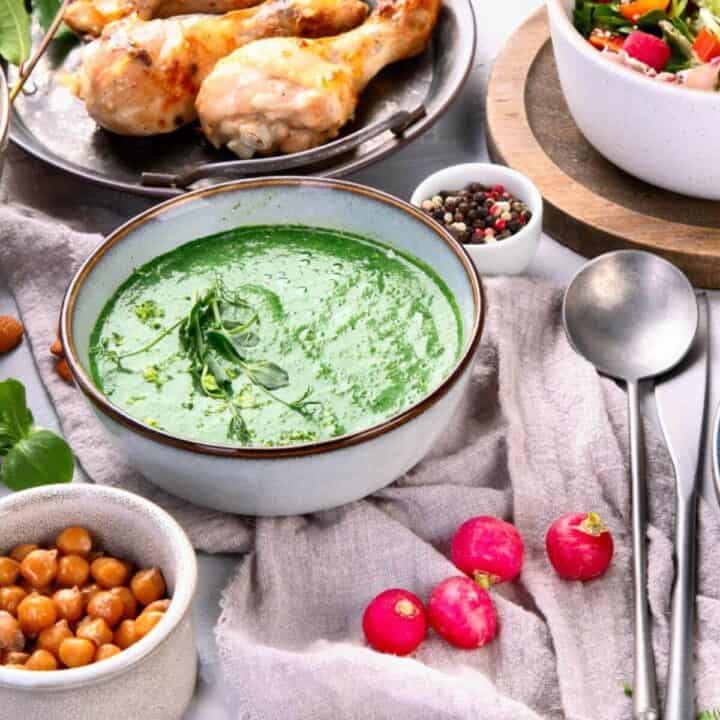
🥣 Foods To Eat On An Anti-Inflammatory Diet
The journey to reducing chronic inflammation begins with mindful choices about what you put on your plate. An anti-inflammatory diet emphasizes nutrient-dense foods that can help calm your body's inflammatory responses, promoting better health and vitality.
Let's dive into the specific foods you should be eating to harness these anti-inflammatory benefits.
Fruits and Vegetables
Fruits and vegetables are the cornerstone of an anti-inflammatory diet. Also, they are packed with antioxidants, vitamins, and minerals that help combat inflammation. Aim to eat colorful rainbow filled foods into your diet. Examples include:
- Berries (strawberries, blueberries, raspberries) - Rich in antioxidants like anthocyanins, which have strong anti-inflammatory effects.
- Leafy Greens (spinach, kale, Swiss chard) - High in vitamins A, C, and K, as well as folate and fiber, which support immune function and reduce inflammation.
- Tomatoes - Contain lycopene, an antioxidant that reduces inflammation and may lower the risk of certain diseases.
- Broccoli - High in sulforaphane, an antioxidant that fights inflammation and supports detoxification.
Whole Grains
Whole grains provide essential fiber and nutrients while maintaining a low glycemic index, which helps regulate blood sugar levels and reduce inflammation. Examples include:
- Oats: Rich in beta-glucan fiber, which has been shown to reduce inflammation.
- Quinoa: A complete protein source with high levels of fiber and various vitamins and minerals.
- Brown Rice: Contains fiber, magnesium, and other anti-inflammatory compounds.
Healthy Fats
Incorporating healthy fats into your diet can significantly reduce inflammation. These fats are rich in omega-3 fatty acids and monounsaturated fats, which have anti-inflammatory properties. Examples include:
- Olive Oil: Contains oleocanthal, a compound with anti-inflammatory effects similar to ibuprofen.
- Avocados: Provide monounsaturated fats, potassium, magnesium, and fiber, all of which help reduce inflammation.
- Nuts and Seeds: (Almonds, walnuts, chia seeds, flaxseeds): High in omega-3 fatty acids and fiber.
- Fatty Fish (salmon, mackerel, sardines): Rich in EPA and DHA, two types of omega-3 fatty acids that reduce inflammation.
Lean Proteins
Lean proteins are essential for muscle repair and body function, while supporting an anti-inflammatory diet. Examples include:
- Poultry (chicken, turkey): Lower in saturated fat compared to red meat, making them a better choice for reducing inflammation.
- Tofu: A plant-based protein that provides all essential amino acids and has anti-inflammatory properties.
- Legumes and Beans: (Lentils, chickpeas, black beans): High in fiber, protein, and various anti-inflammatory compounds.
Herbs And Spices
Herbs and spices not only add flavor to your meals, but also contain compounds with potent anti-inflammatory effects. Examples include:
- Turmeric: Contains curcumin, a powerful anti-inflammatory and antioxidant compound.
- Ginger: Reduces inflammation and pain, and improves digestion.
- Garlic: Contains sulfur compounds that stimulate the immune system and reduce inflammation.
- Cinnamon: Rich in antioxidants that have anti-inflammatory properties.
By focusing on these nutrient-dense foods, you can effectively reduce inflammation and support
overall health.
🚫 Foods To Avoid On An Anti-Inflammatory Diet
Being aware of these inflammatory foods and making conscious choices to avoid them is a significant step toward improving your health. Let's explore the specific foods you should steer clear of to maintain a balanced and anti-inflammatory diet, especially if you suffer from an autoimmune disease.
Processed Foods
Processed foods often contain trans fats, sugar, and additives that promote inflammation. Sadly, this might mean having to put your favorite takeout on hold. Other examples include:
📥 GET THIS RECIPE IN YOUR INBOX 📥
- Packaged Snacks: Chips, crackers, and cookies often contain unhealthy fats and artificial ingredients.
- Processed Meats: Sausages, bacon, and deli meats are often high in preservatives and unhealthy fats.
Sugary Foods And Beverages
The high sugar content can lead to increased inflammatory markers in several ways. We know it's hard, but it's best to try and avoid sugary snacks. Examples include:
- Soda: Loaded with sugar and artificial sweeteners that can trigger inflammation.
- Candy: High in refined sugar, which can spike blood sugar levels.
- Baked Goods: Pastries, cakes, and cookies often contain high levels of sugar and unhealthy fats.
Refined Carbohydrates
Refined carbohydrates cause spikes in blood sugar and insulin levels, contributing to inflammation. Examples include:
- White Bread: Made with refined flour that lacks fiber and nutrients.
- Pastries: High in refined sugar and unhealthy fats.
- White Rice: Stripped of its bran and germ, leading to a rapid rise in blood sugar.
Fried Foods
Fried foods are high in unhealthy fats. If you're aiming to limit inflammation, stay away from foods such as the one mentioned below.
- French Fries: Often cooked in oils high in trans fats.
- Fried Chicken: Coated and cooked in unhealthy oils.
- Doughnuts: High in sugar and unhealthy fats.
Excessive Alcohol
Sorry to break it to you, but excessive alcohol consumption can disrupt gut microbiota and also increase inflammation. So, it's best to consume alcohol in moderation to avoid these negative effects.
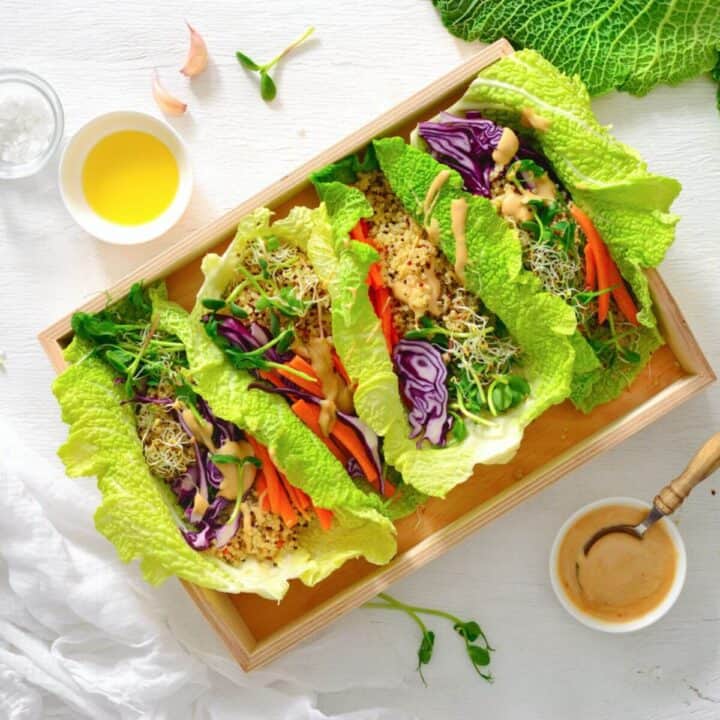
🍎 Make Mindful Healthy Choices To Manage Inflammation
So, by making mindful choices about what you eat, you can take a proactive approach to managing inflammation and improving your quality of life. If you're ready to take the next step and need guidance on your journey to better health, check out my additional resources below.
Also, I'm here to provide the support and expertise that new beginners need to thrive on an anti-inflammatory diet. Let's work together to create a plan that fits your lifestyle and helps you achieve your wellness goals.
💫 Pro Nutrition Tip
An anti-inflammatory diet is your body's natural defense against chronic disease! 🥑✨ Focus on whole, nutrient-dense foods like fatty fish, leafy greens, berries, nuts, and turmeric to help calm inflammation at the root.
Swap out processed foods and refined sugars for fiber-rich, antioxidant-packed choices to nourish your gut, balance hormones, and boost energy. 🌿🔥 Small daily choices add up to big health benefits! 💛
🍒 Anti-Inflammatory Recipes
Try out some of my favorite anti-inflammatory recipes. For example, mix and match to create your own meal plan for the week. Try to pick recipes that you can double for easy meal prep. You can also find many more recipes on the Recipe Index.
- 5 Gluten Free Porridge Recipes For A Healthy Breakfast
- Refreshing Thai Asian Crunch Salad Bowl Recipe
- Easy, Healthy Salmon Recipe with Orange Rosemary Vinaigrette
- Nourishing Fennel And Ginger Detox Borscht Beet Soup Recipe
- Best Ginger Turmeric Bone Broth (Anti-Inflammatory) Recipe
- Best Pumpkin Gummies With Turmeric & Ginger For Inflammation
- Healthy Lemon Smoothie Recipe Made with Coconut Creme
- Avocado Banana Mousse - Gut Healthy, Easy No Bake Dessert
🗣️ Let's Discuss How To Transform Your Autoimmune Disease With Anti-Inflammatory Diet
So, did any of these tips for beginners who want to start the anti-inflammatory diet help you today? Let me know in the comments below. Which new anti-inflammatory food will you try this week?
You can also connect with me @EatYourNutrition on Instagram. I love seeing your photos. #EatYourNutrition #LauraVillanueva
⏭️ Additional Resources
Also, for further reading and guidance on how to transform your health and autoimmune disease with an anti-inflammatory diet, consider exploring the following resources.
Suspect you have an autoimmune disease and want to take the first steps to improve your health? Join the Eat Your Nutrition email newsletter, and download my free guide, Autoimmune Roadmap: Your First Steps To Feeling Better
- Program - Join my Reset & Renew Nutrition Program. Register here to learn about transforming your metabolism, mindset, and live in a healthy state of well-being. A 4-month online program will help reset and transform your entire body.
- Meal Plan - Want a simple recipe guide and anti-inflammatory meal plan packed with the key to reducing inflammation? Try this meal plan and recipes inside the Anti-Inflammatory Meal Plan.
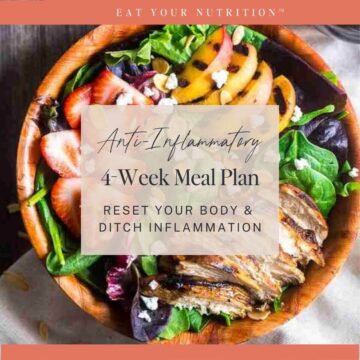
- Group Support - Join my Featured Nutrition Challenge. All seasonal nutrition challenges come with a meal plan, recipe guide, grocery shopping list, and a seasonal featured nutrition theme.
📚 References
- Stromsnes K, Correas AG, Lehmann J, Gambini J, Olaso-Gonzalez G. Anti-Inflammatory Properties of Diet: Role in Healthy Aging. Biomedicines. 2021 Jul 30;9(8):922. doi: 10.3390/biomedicines9080922. PMID: 34440125; PMCID: PMC8389628.
- Jungbauer A, Medjakovic S. Anti-inflammatory properties of culinary herbs and spices that ameliorate the effects of metabolic syndrome. Maturitas. 2012 Mar;71(3):227-39. doi: 10.1016/j.maturitas.2011.12.009. Epub 2012 Jan 9. PMID: 22226987.
- Tristan Asensi M, Napoletano A, Sofi F, Dinu M. Low-Grade Inflammation and Ultra-Processed Foods Consumption: A Review. Nutrients. 2023 Mar 22;15(6):1546. doi: 10.3390/nu15061546. PMID: 36986276; PMCID: PMC10058108.


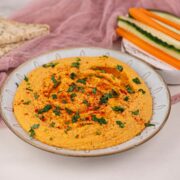



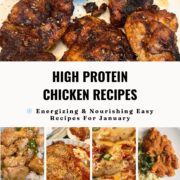






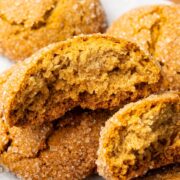
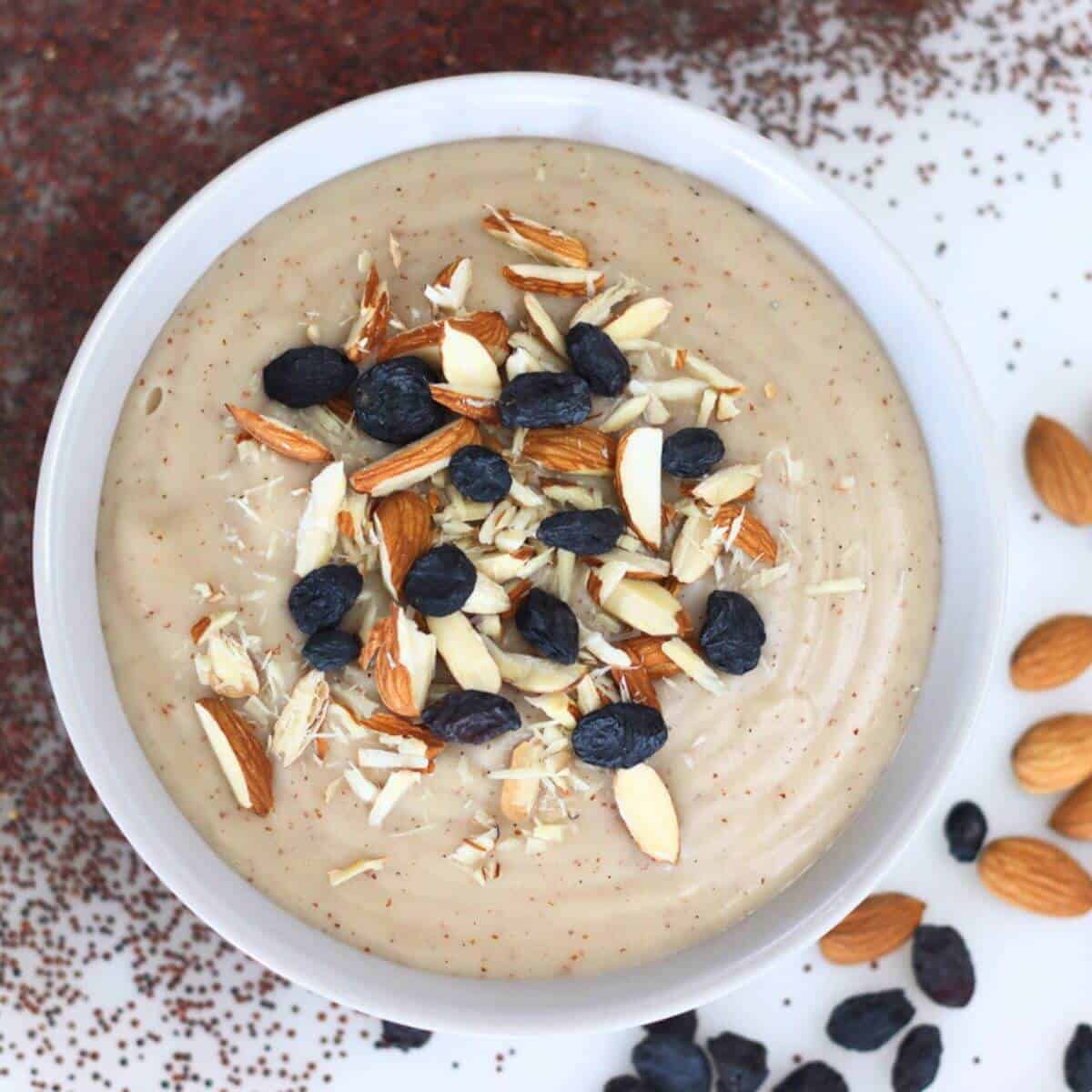
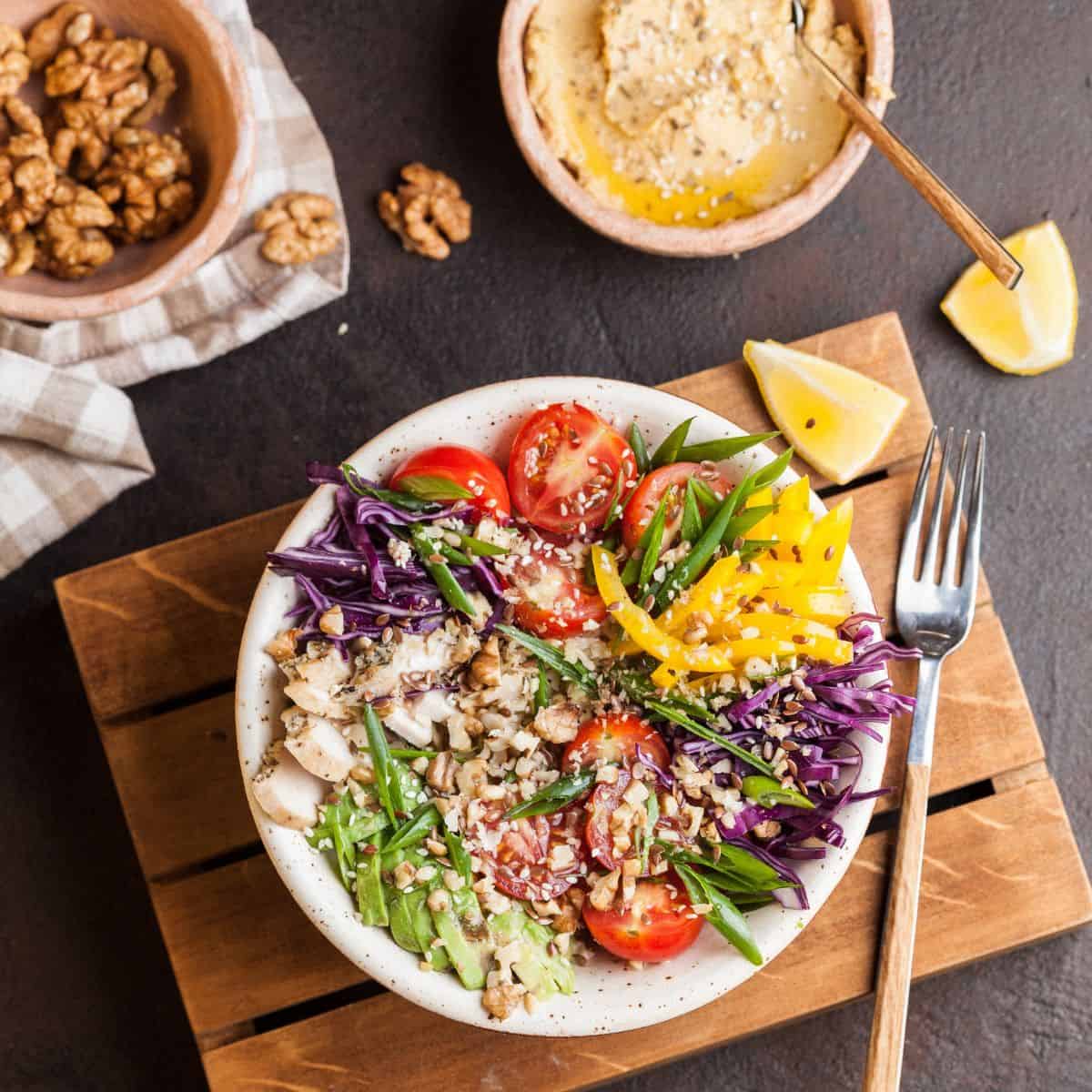
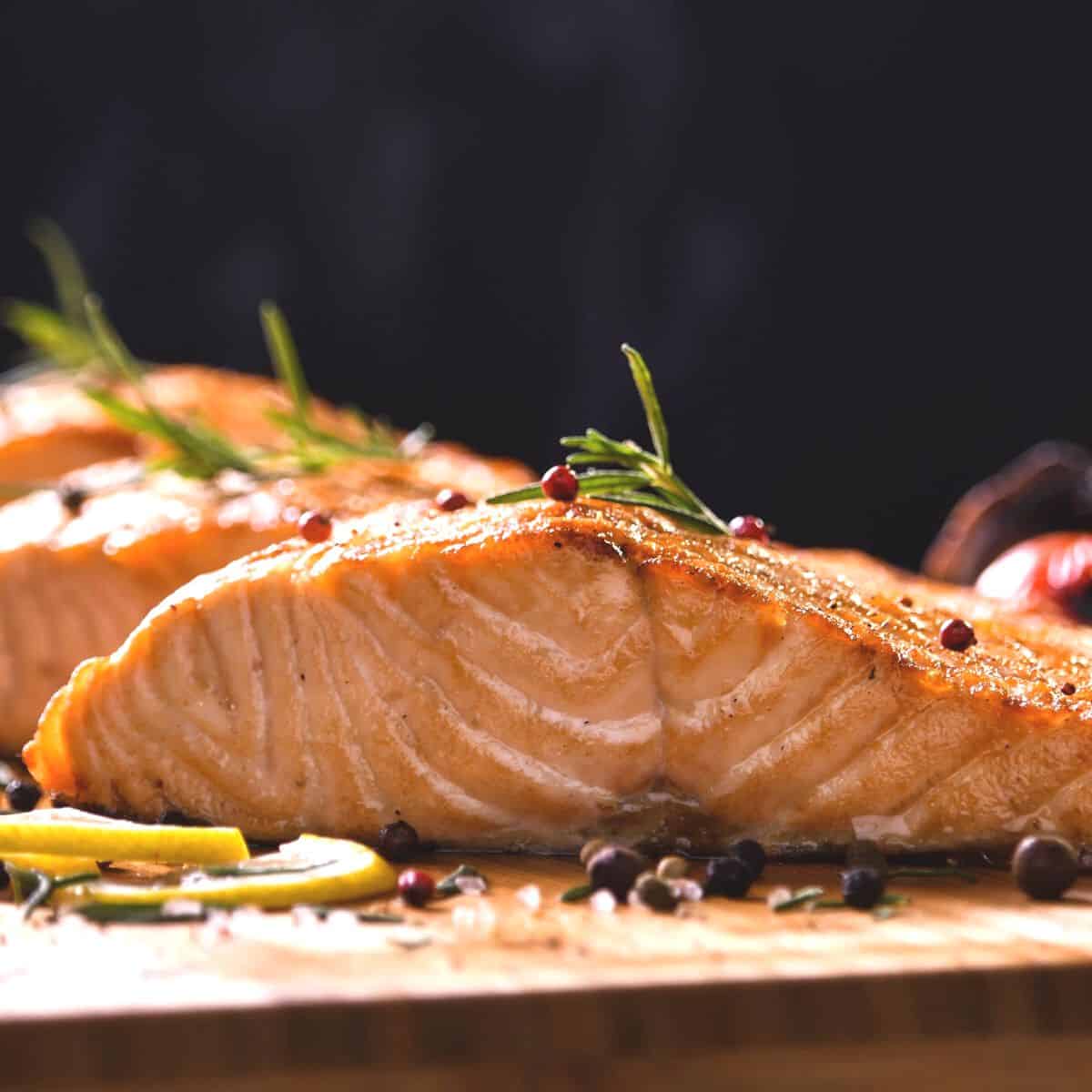
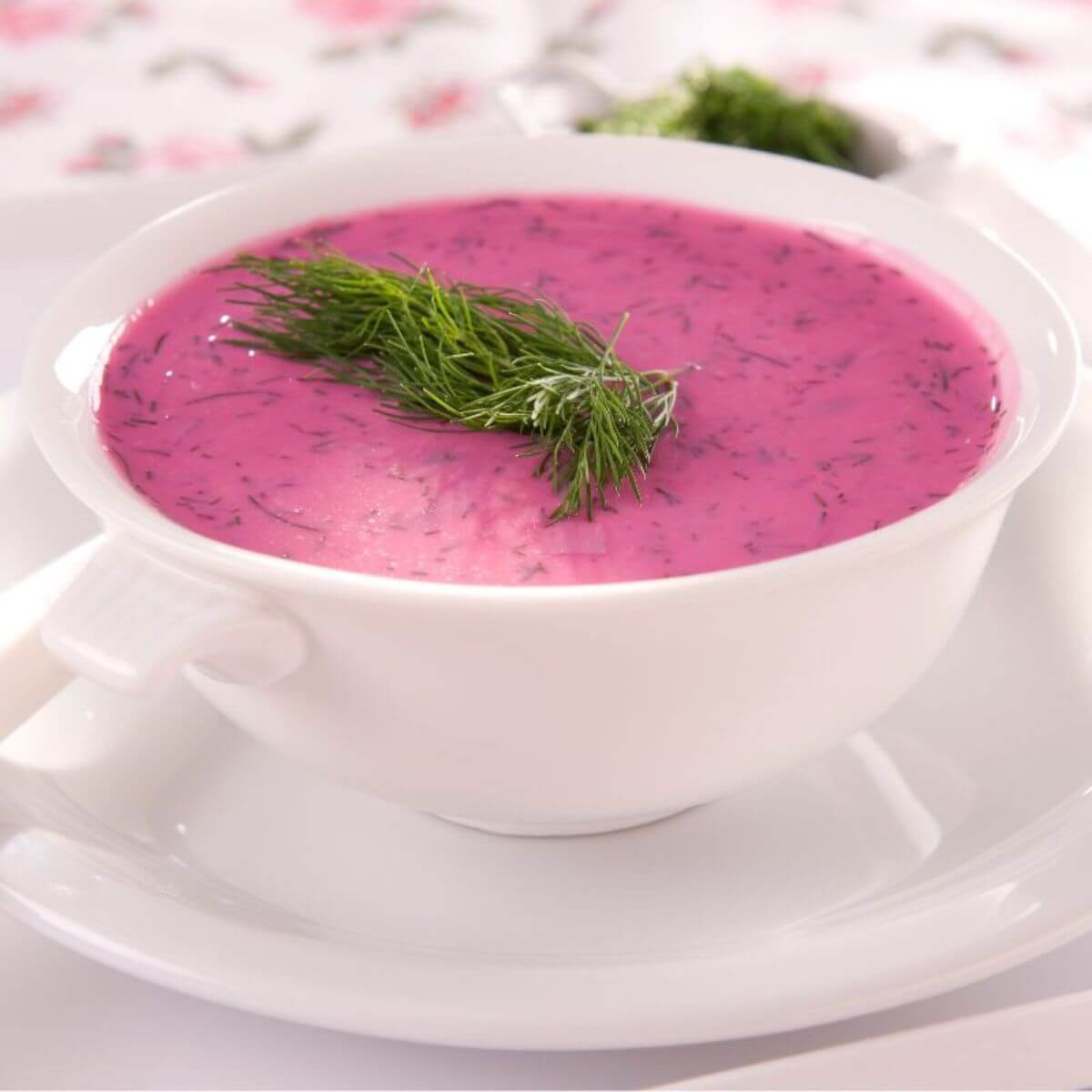
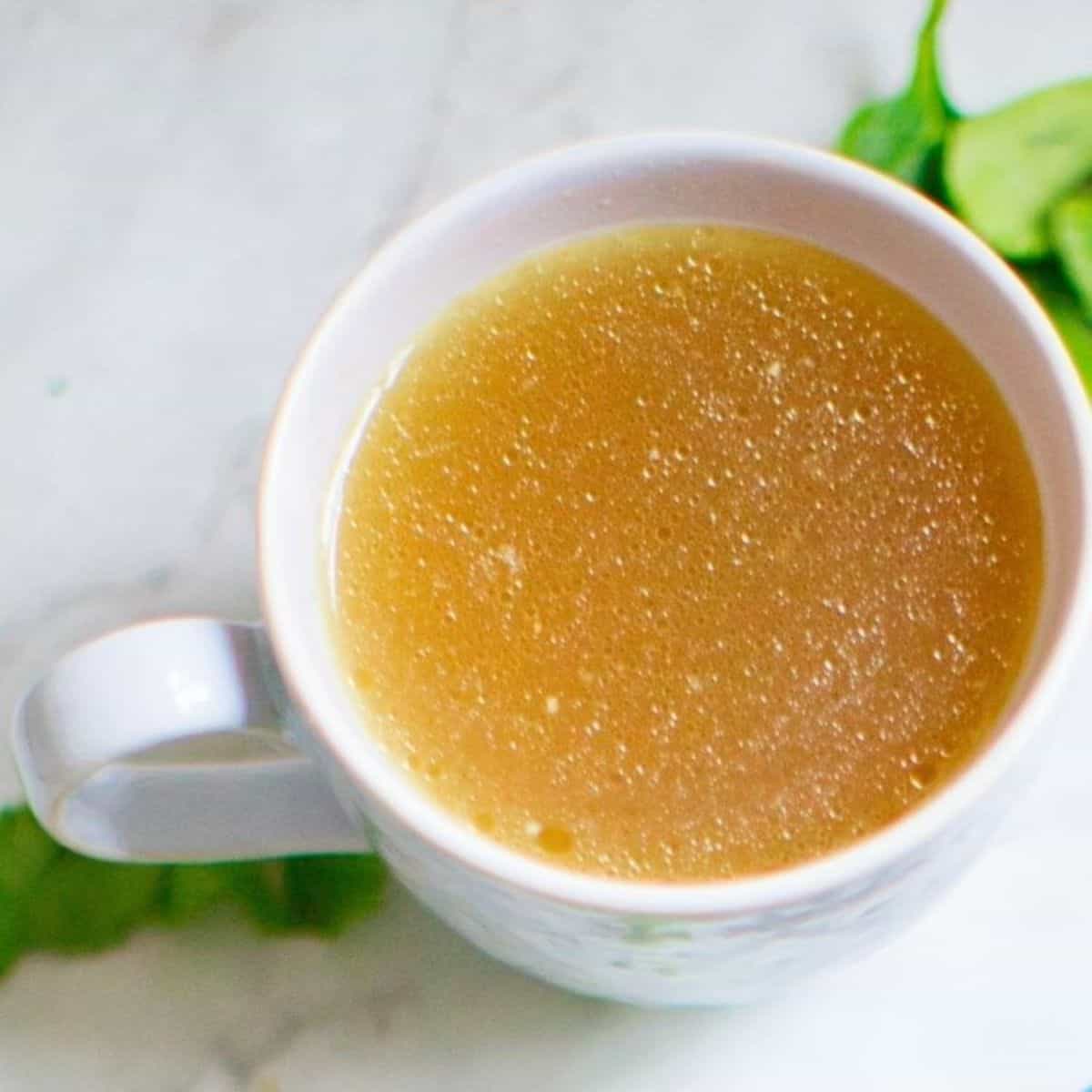
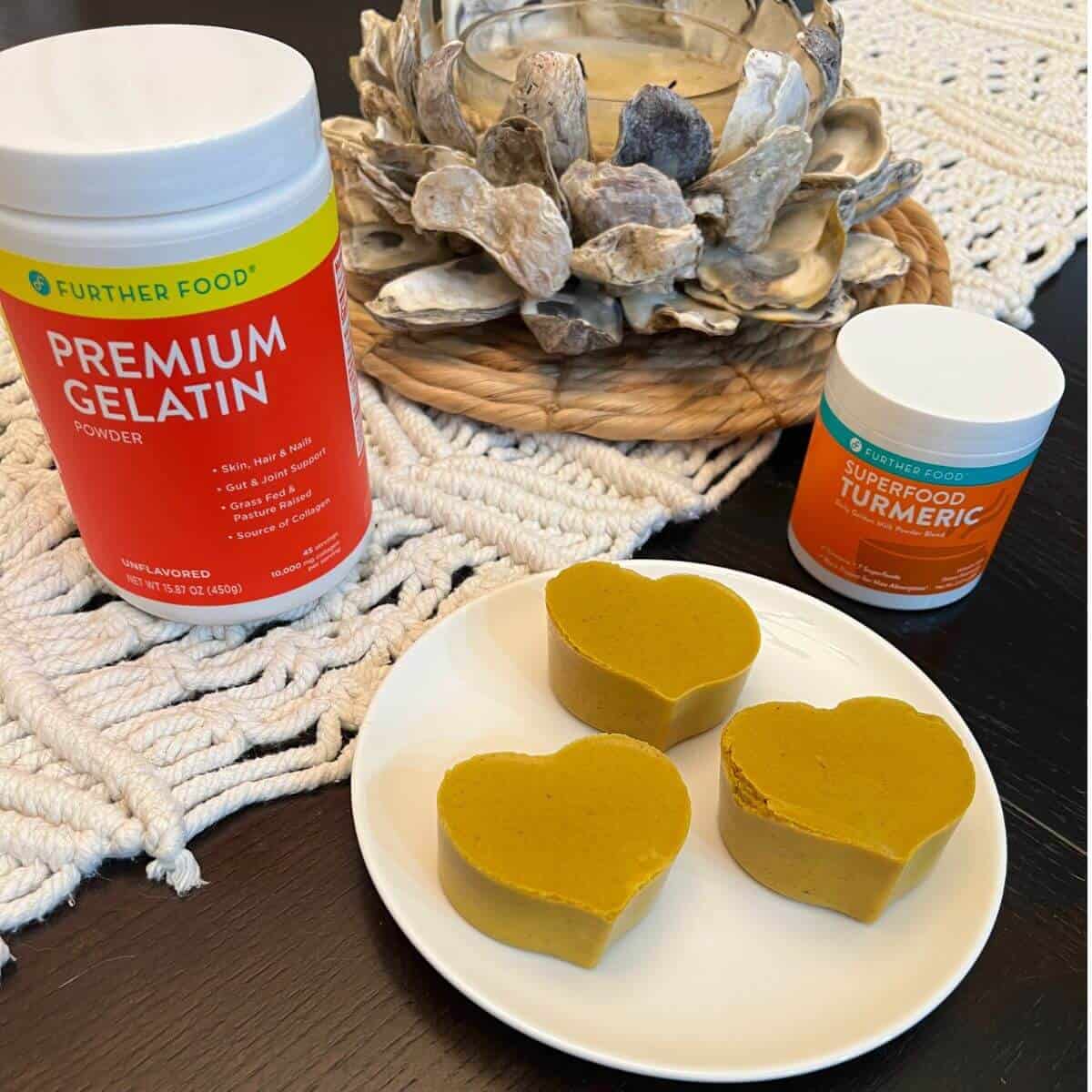
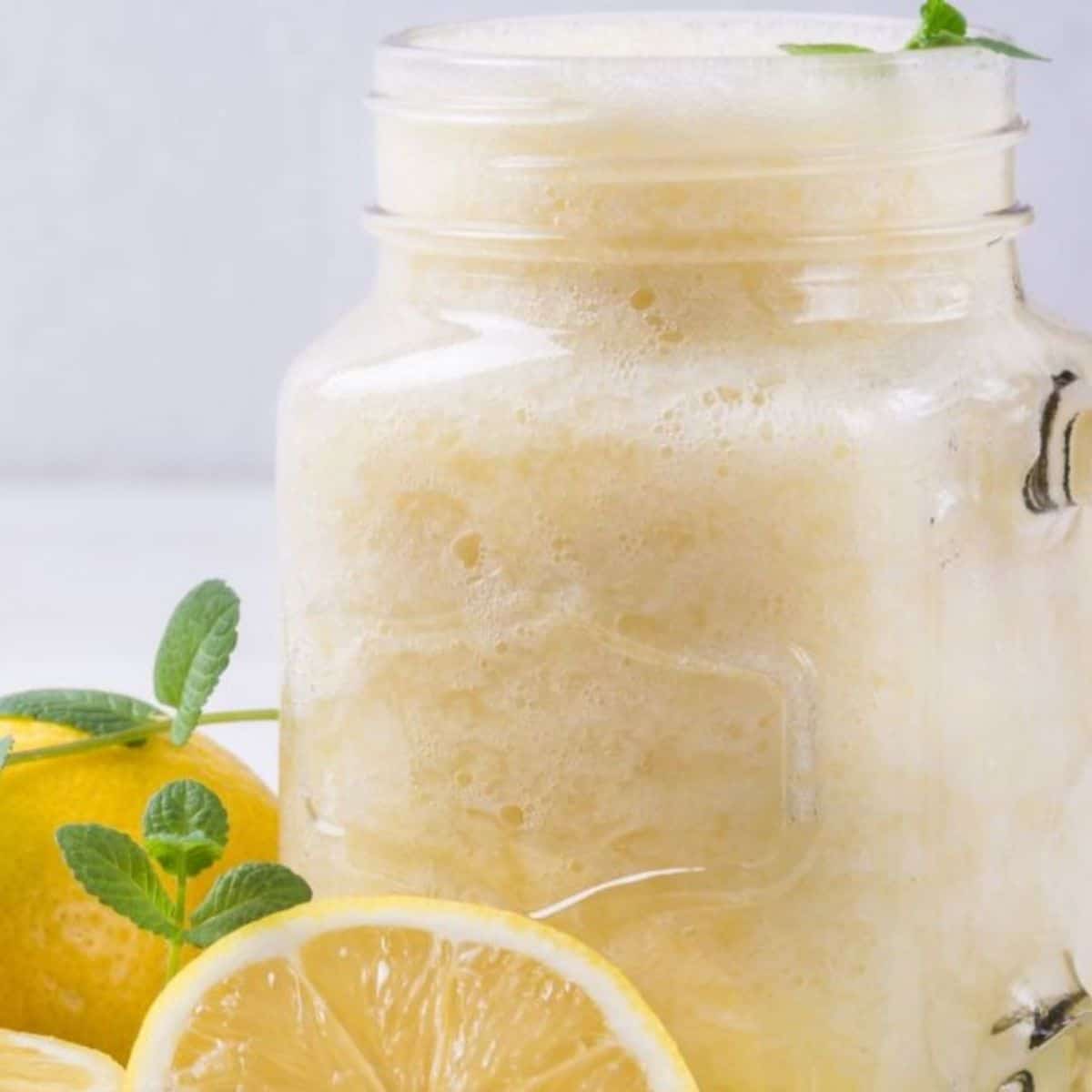
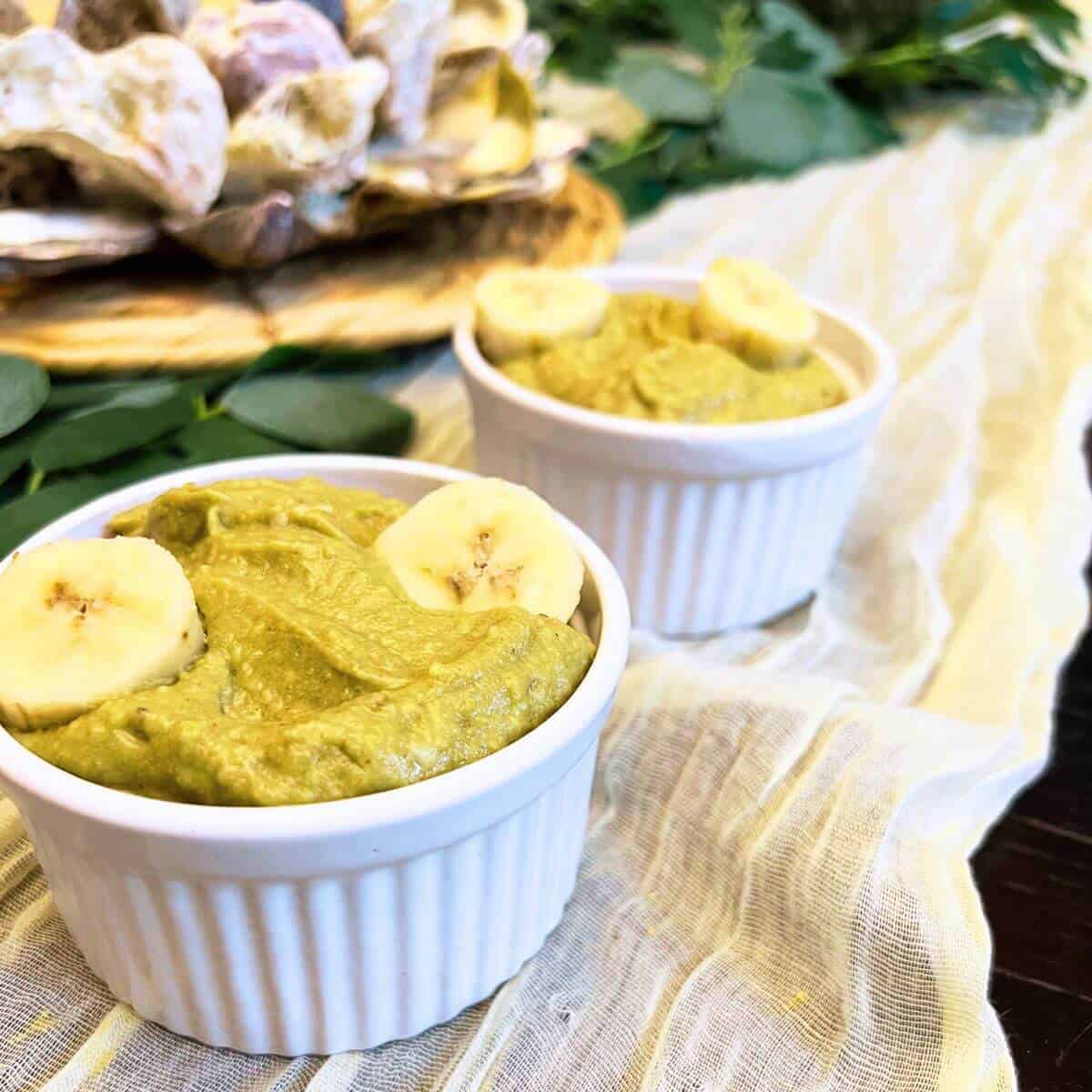
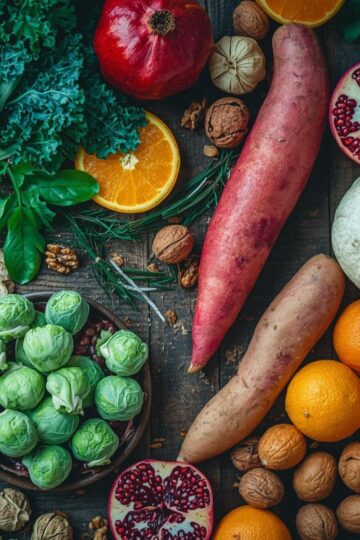

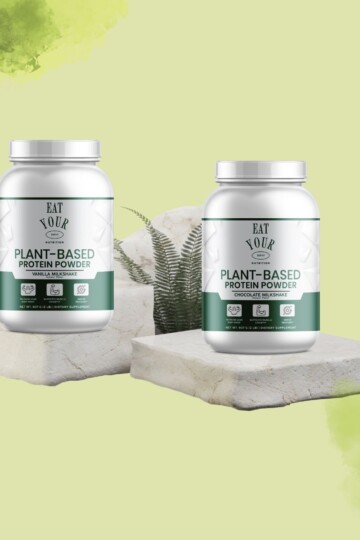
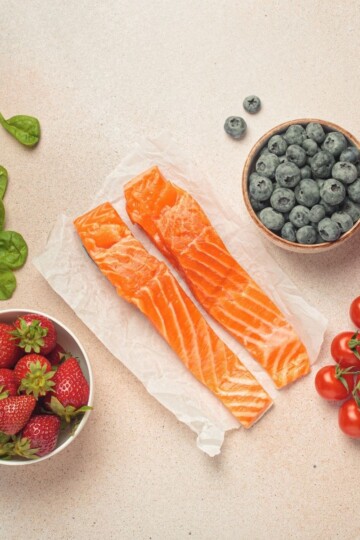
Comments
No Comments